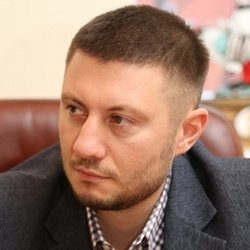Craving for Cashbery: financially literate Russians give their money to Ponzi scheme companies hoping to gain profit before they collapse
One of the largest pyramid schemes of the last twenty years collapsed a year ago
November 1 had marked a year since one of the largest financial pyramid schemes of recent times ceased to exist. The group of companies operating under the brand Cashbery terminated its operation, and on November 7, its founder Artur Vardanyan left Russia, promising to start a new project in the near future. About the reasons why citizens who are aware of the consequences of participation in pyramid schemes continue to bring their money to the “fields of miracles”, criminal investigations against the creators of financial pyramid schemes operating in Tatarstan, and the prospects of these criminal businesses — read in the material of Realnoe Vremya.
“There are inexperienced people falling for such Ponzi schemes”
For the first time, it was announced about Cashbery as a pyramid scheme last year on September 26 by the Bank of Russia, which saw in the actions of the company “clear signs” of a fraudulent scheme.
“This is one of the largest financial pyramid schemes that we have identified in recent years, it launched its activities in many regions, almost throughout the country,” said Valery Lyakh, the director of the department for countering unfair practices at the Central Bank of Russia.
According to him, the company did not conduct real economic activity but attracted the money of the population in rubles and cryptocurrency and actively advertised itself. According to expert estimates, Cashbery managed to attract a few tens of thousands of people. The Central Bank of Russia submitted information about the company to the Prosecutor General's Office and the ministry of internal affairs.
Just the next day, the Prosecutor General's Office demanded to block the sites of Cashbery: “The company has no license which would allow to carry out activity in the financial market, it continues to raise funds, an unlimited number of persons can suffer,” the official representative of the Prosecutor General's Office, Alexander Kurennoy, stated.
In early October, the Central Bank of Russia estimated that the company's customers could lose a billion rubles, or maybe more. By the middle of the month, Cashbeery had suspended operations and the police started to check it for signs of a pyramid scheme. Later, the head of the Central Bank of the Russian Federation, Elvira Nabiullina, compared Cashbery with scammers trading tokens in the subway under the guise of cryptocurrency:
“Fraud in the financial market — it has always been, it takes different forms. There is some fashionable phenomenon in the financial market, and we immediately see that there are scammers. Remember that even in the form of cryptocurrency tokens were sold near the subway? There are inexperienced people, maybe, insufficiently financially competent who fall for a bait of such swindlers,” Nabiullina reported.
The regulator estimated the damage to customers of Cashbery at 1-3 billion by the end of October. The “pyramid” itself promised to pay off all applicants in November. But on November 1, the owner of the company, Artur Vardanyan, announced the termination of Cashbery. According to him, the activity in the previous format was impossible because of the “declared hunt to remove the company from the market”.
There are no official data on how many offices the company had in Kazan and other Tatarstan cities. Social networks were full of only numerous groups. In one of them, dedicated to the activities of Cashbery in Naberezhnye Chelny, the administrator answered the questions of Realnoe Vremya with a dry “I do not know”. The administrator of the group in Nizhnekamsk left the message unread, and another investor, Ruben Goncharov, who indicated in another group that he was the head, confirmed only that there were the company's offices in Kazan, but where they were and what their fate was — he did not explain.
Criminal cooperatives
As the Ministry of Internal Affairs of the Republic of Tatarstan reported to Realnoe Vremya, now five criminal cases against the creators of financial pyramid schemes are being in progress. These are the cases of Mobile Trade Group PLC, Russ Finance Invest Group, which have dragged on since 2014, as well as Central Savings Bank CPC, whose chairman is a citizen of Ukraine in 2015-2017, who, according to the prosecution, stole more than 108 million rubles from the residents of Tatarstan. Indictments on them are ready, now accused and victims get acquainted with materials of cases before recommitting to court.
At the same stage — the criminal cases on Credit Centre CPC and Russinvestgroup PLC, as well as of Naberezhnye Chelny NAsledie NSK, for the investigation of which law enforcement agencies took on in 2015.
One case has been submitted to court —Kazan Sberfinans KPK, whose branches operated in more than 25 Russian cities, including Nizhny Novgorod, Chelyabinsk, Naberezhnye Chelny, Samara, Yekaterinburg, Togliatti, Yoshkar-Ola and Rostov-on-Don. The head of this cooperative ran off with the money of the depositors, the damage from its activities was estimated at 1 billion rubles.
All pyramid schemes, created in most cases as credit and consumer cooperatives, have one thing in common: their organizers promised investors fabulous interest. For example, Credit Centre — Chelny promised deposits up to 120 per cent per annum.
Does Emelya live in everyone?
It would seem that in the 25 years since Leni Golubkov, Russians should have learned the lessons about free cheese in a mousetrap. However, there is a huge number of those those wishing to give money to pyramid schemes, promising unrealistic-100-120 percent yield. And people went in droves to Cashbery, positioning itself as a “holding of online lending”, where lenders can receive daily 0,8-1,5 per cent of the amount of investment.
“Those who organize the pyramid schemes, of course, have their own interest,” said Associate Professor of Psychology at the Institute of Pedagogy and Psychology of the Kazan Federal Universiyt Galina Alexandrova. “People tend to believe in a miracle, in a fairy tale, when sitting on the stove and doing nothing, you can get everything ‘at the behest of the pike’. Since those who promise maximum returns with a minimum of effort, arrange it skillfully, and their information falls on well-prepared ground, financial pyramids were, are and will be.”

“It's worth the risk”
Financiers, unlike psychologists, take into account not only the presence in society of a certain percentage of Yemelyas who believe in the existence of magic pikes and good goldfish, but also the ability of sober-minded citizens to observe the pyramid schemes, draw conclusions about the principles on which they are built and then benefit.
“Cashbery from the very beginning had all the signs of a financial pyramid scheme — it is aggressive advertising, the promise of high profitability, unclear on what basis,” deputy director of the Association for the development of financial literacy, director general of the analytical agency Biznesdrom Pavel Samiev says. “Besides, the company worked without any official licenses, and contracts with clients concluded, shall we say, in a strange, crooked form. Cashbery was a brand that was advertised, and when an investor brought money there, it was not even a loan agreement with him, but the opening of some account abroad, and people had no rights at all. But the person is so arranged — at the promise of income in 40-50 per cent at the deposit rate of 6 per cent, he understands that it is a pyramid scheme, and does not go there, and if it offers 600 per cent, he argues the following way: ‘For the sake of it, it worth the risk.’ Absurd profitability, I think, played a role here. But in the case of Cashbery, I suppose, many people were realising that this was a pyramid scheme, however, hoped that he would have time to leave with the money. And someone did it, what is more — several times. We already have such competent investors who understand what is happening and participate in this gamble.”
No illusions
“Just after this (collapse of Cashbery), the Central Bank received the opportunity to block the websites that advertise the pyramid schemes — such opportunity has appeared this year,” Pavel Samiev reminded in response to the question of Realnoe Vremya about the probability of repetition of “pyramid” stories in Russia in the near future. “And the ministry of internal affairs quickly enough finds initiators. So, the fight against the pyramids has intensified, before it all dragged on for years. It is impossible to stop their activity at once, but the speed of reaction has become different.”
As for the pyramid schemes, the activities of which are being investigated by law enforcement agencies in Tatarstan — various kinds of credit and consumer cooperatives (CPC), Samiev has no illusions about them: they will arise, the expert believes:

“Some people fall into these networks because they think they are smarter than others,” Dmitry Travin echoes Samiev. “They say, they in time will leave with money, and the next people will pay off. Financial pyramids will always arise because there is motivation. But I suppose no pyramids of such scale as in 1994 will arise.”